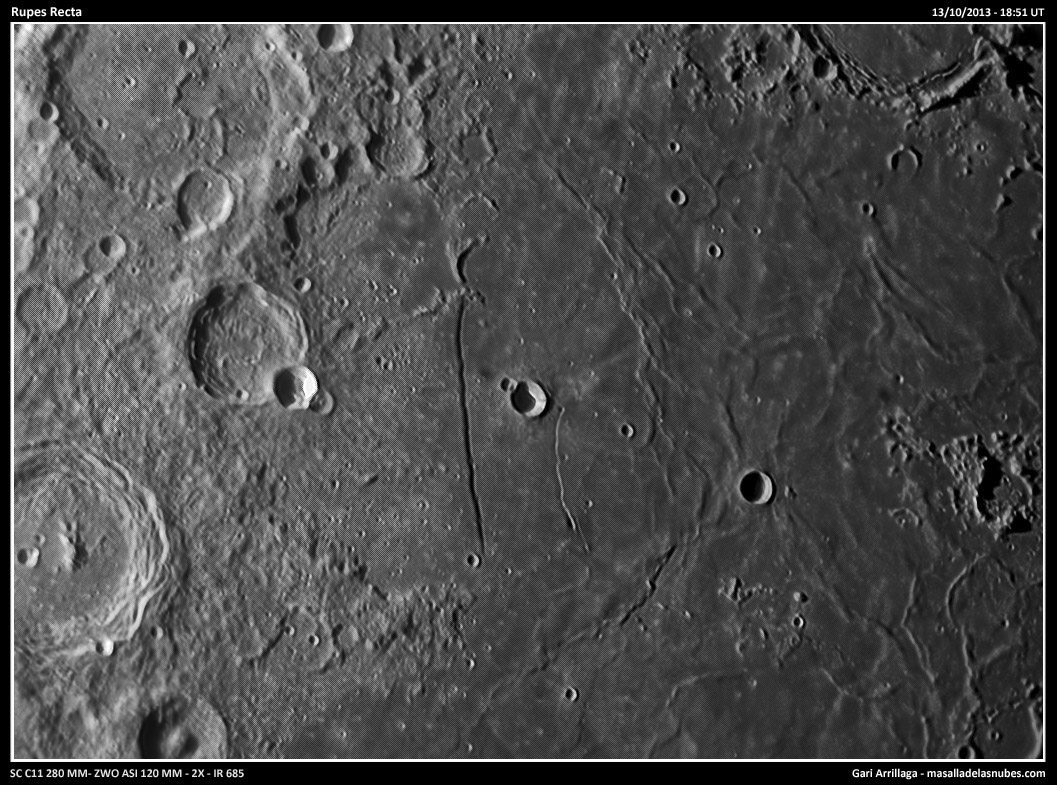Difference between revisions of "October 21, 2013"
| Line 11: | Line 11: | ||
<br /> | <br /> | ||
<strong>Related Links</strong><br /> | <strong>Related Links</strong><br /> | ||
| − | <em>[ | + | <em>[[21st Century Atlas of the Moon|21st Century Atlas]]</em> chart 16.<br /> |
<br /> | <br /> | ||
<p><b>Yesterday's LPOD:</b> [[October 20, 2013|Io Lookalike]] </p> | <p><b>Yesterday's LPOD:</b> [[October 20, 2013|Io Lookalike]] </p> | ||
Latest revision as of 08:35, 28 October 2018
Familiar Terrain Seen a Little Differently

image by Gari Arrillaga
Do you notice anything unusual about the distribution of one type of landform here? The mare ridges snake around everywhere on the right side of the scene. But inside the ridge that defines Ancient Thebit there are essentially no ridges. I wonder why. Some of the quasi-circular ridges apparenly are ghost craters, marking the rims of lava-covered craters on the Nubium Basin floor. But many aren't. They also don't define a compelling inner circle as at Imbrium and other basins. If mare ridges result from the settling of a thick pond of frozen lava into a smaller volume as the basin floor subsides the lack of a pattern at Nubium makes the subsidence process hard to understand. The lack of ridges inside Ancient Thebit - around the Straight Wall - could be because the faulting released stresses in this portion of the mare.
Chuck Wood
Related Links
21st Century Atlas chart 16.
Yesterday's LPOD: Io Lookalike
Tomorrow's LPOD: Little Seen Rille
COMMENTS?
Register, Log in, and join in the comments.



